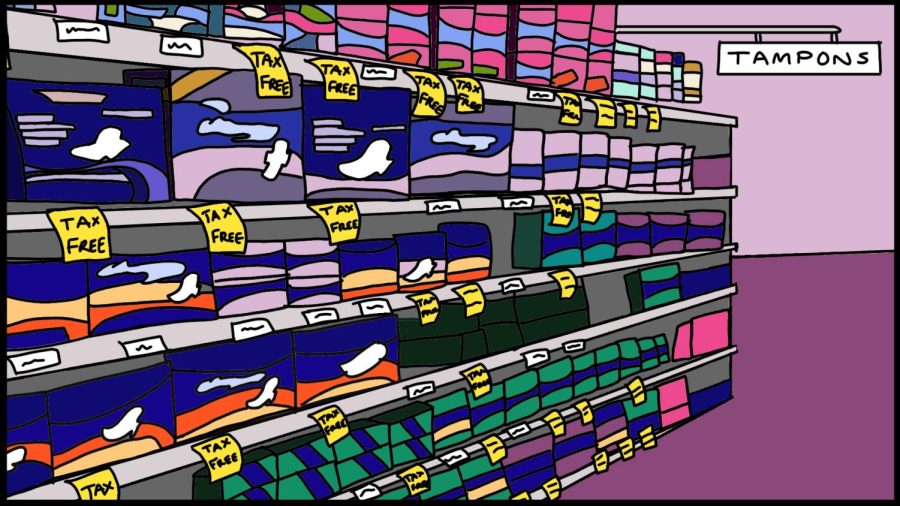Students discuss bill proposing end to sales tax on menstrual products
March 9, 2023
As the bill filing period of the 2023 legislative session comes to a close, a bill introduced in the Texas House could reduce the price of menstrual products by removing the state sales tax at check out.
Texas House Speaker Dade Phelan announced his support in February for the bill focused on repealing the sales tax for baby products, including diapers, menstrual products and other family care products. The tax exemption would include tampons, menstrual cups, pads and “other similar tangible personal property sold for the principal purpose of feminine hygiene in connection with the menstrual cycle,” according to the bill.
Jenna Pinder, a member of Students for Planned Parenthood, said she spends about $20 on menstrual products each month. As a working student, she said the price of necessities like tampons or pads adds an extra cost into her monthly budget, something she realizes others may have an even harder time fitting into their expenses.
“When you go to purchase menstrual products, the cost of it is astronomical,” said Pinder, a government and history senior. “I think this (bill) is essential in allowing me as a college student to be able to afford an essential product.”
Fatoumata Diallo, co-founder and board member of the nonprofit organization Women’s Relief Initiative, said period inequity impacts people with periods both globally and in the state of Texas. She said menstrual products are a necessity for not only hygiene but also the overall health of people with periods.
In Texas, refugee, homeless and lower-income populations experiencing menstruation who don’t have accessible, affordable menstrual products may resort to unsanitary and unsafe alternatives that can cause infections, infertility and long-term health problems, Diallo said.
“There are life consequences that arise from (lack of menstrual product access),” UT alumna Diallo said. “Although repealing the tampon tax wouldn’t solve the general issue of lack of access to health resources and education, I think it would be a major step forward.”
State politicians have previously supported the repeal of state “tampon taxes,” including Gov. Greg Abbott last year. In October, CVS pharmacies began reducing the cost of its generic pads, tampons, liners and cups by 25% while also covering the sales tax for consumers in 12 states including Texas.
Students for Planned Parenthood president Sofia Feltwell said the reduced sales tax could motivate the University to provide free menstrual products, something that the organization and other student groups have continuously pushed for.
“(Passing this bill would) show that Texas is for bridging that (inequity) gap and really making it an equitable system instead of having people who menstruate pay so much extra money,” psychology senior Feltwell said.
While she thinks the bill, if passed, would be a point of progress, Pinder said she hopes people who menstruate continue to raise awareness of what it’s like to have a period, regardless of the bill’s fate. Through education, both people who menstruate and people who don’t can work together to advocate for more reproductive health support in the state, she said.
“It’s a normal thing,” Pinder said. “Half of the world’s population goes through (menstruation), so it should be discussed. It should be talked about.”











